This blog was written by Catherine Findlay and Jodi McLean, 5th Year school Pupils from St Andrew’s RC Secondary School, who were at the Fraser of Allander Institute for a week’s work experience.
It is becoming more common to look beyond GDP and to understand a society’s well-being alongside its economic activity. The OECD’s Regional Well-being and Better Life Index measures regional and national quality of life through eleven domains such as income, jobs and health.
To understand Scotland’s well-being in context its important to compare it to the rest of the UK but also to other small countries that are strong performers in the world’s economy.
Scotland & the UK
Personal well-being can be measured through many different factors, one being subjective well-being often described as “happiness”. Scotland boosts the UK’s average rate for happiness considerably, with a higher than average value.
In Scotland, there has been considerable improvement in the average of life satisfaction ratings, but limited changes to ratings of anxiety. Compared to other nations in the UK, Scotland has improved the most in measures of personal well-being.
Chart 1: Scotland’s average happiness, 2012 – 2017
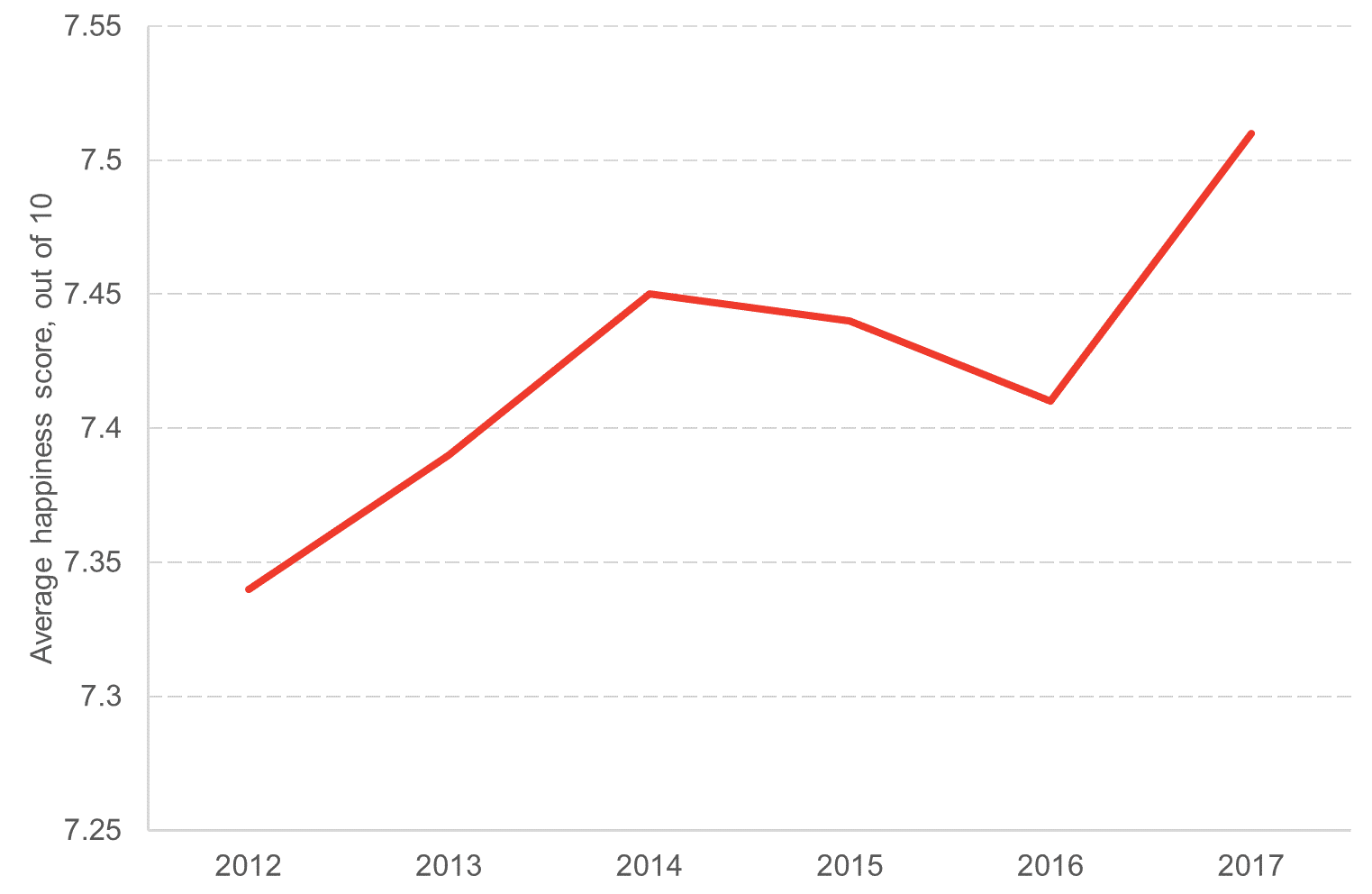
Source: ONS
Income
One of the domains in which Scotland performs less well is Income. Despite Scotland remaining above Northern Ireland and Wales, it falls well below London. See Chart 2.
Chart 2: Regional well-being for income
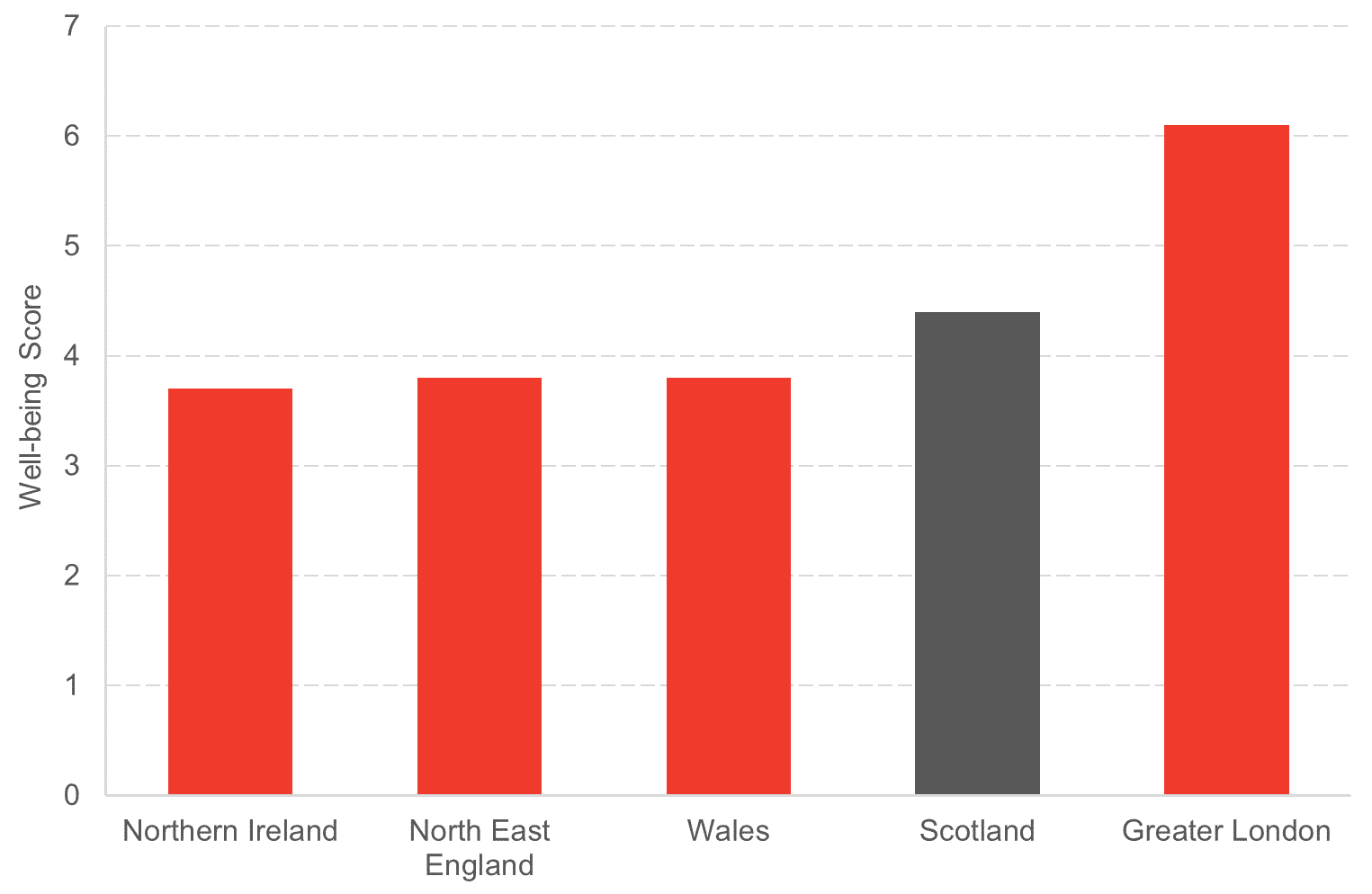
Source: OECD
Health
Scotland performs poorly in the health domain compared to the rest of the UK. Scotland’s score for Health falls to a low 4.9/10, and is the lowest in the UK. Scotland’s low position is due to life expectancy being just under 80 years and mortality rate being 8.8 per 1000 people.
Chart 3: Regional well-being for health
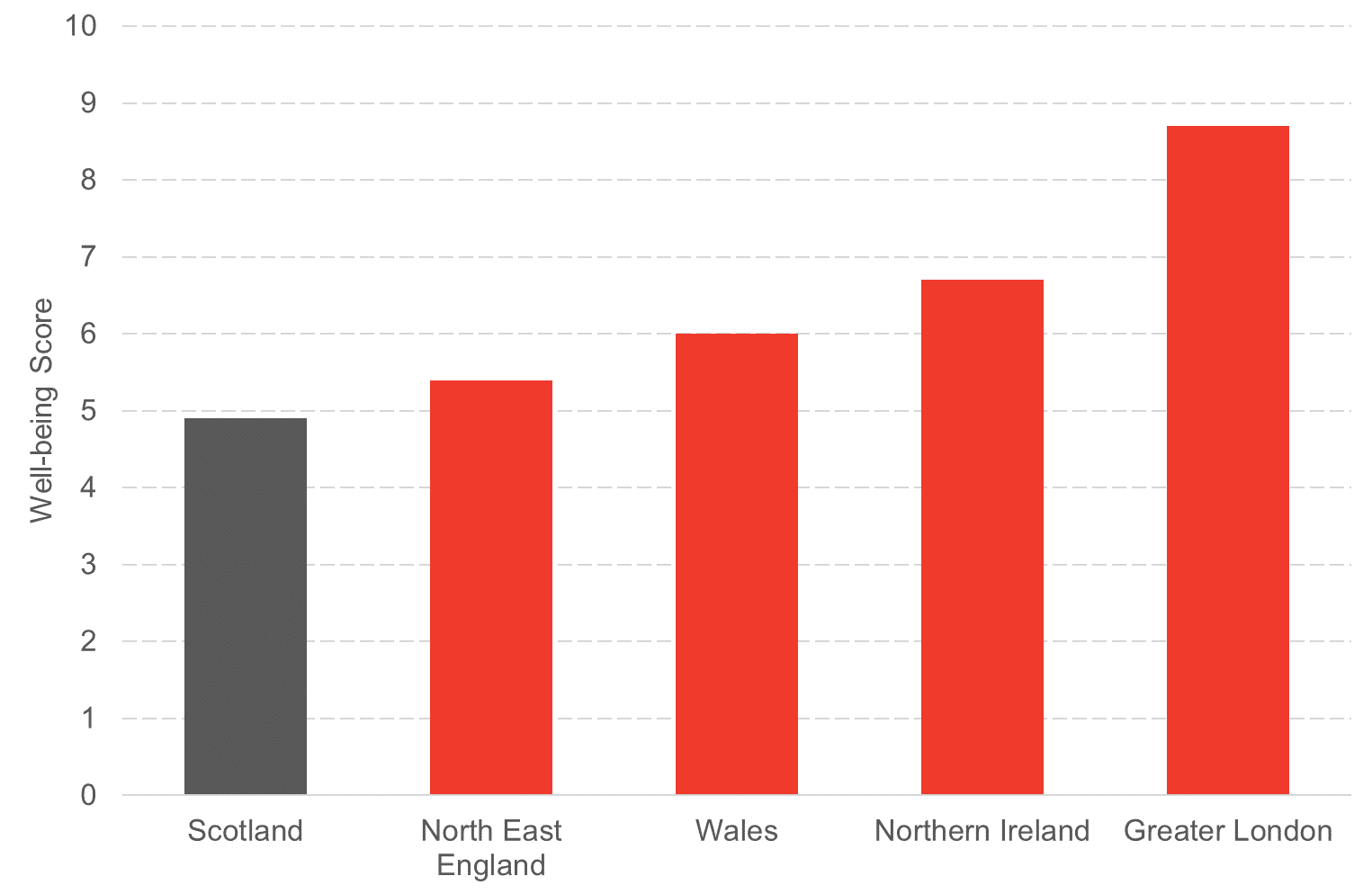
Source: OECD
Scotland & Similar Countries
Health
Countries such as Norway, New Zealand, and Denmark also highlight that there is a large difference in health outcomes compared to Scotland, despite strong similarities amongst some characteristics, such as population. This suggests that Scotland is very far behind in the health domain.
Chart 4: Better life index for health
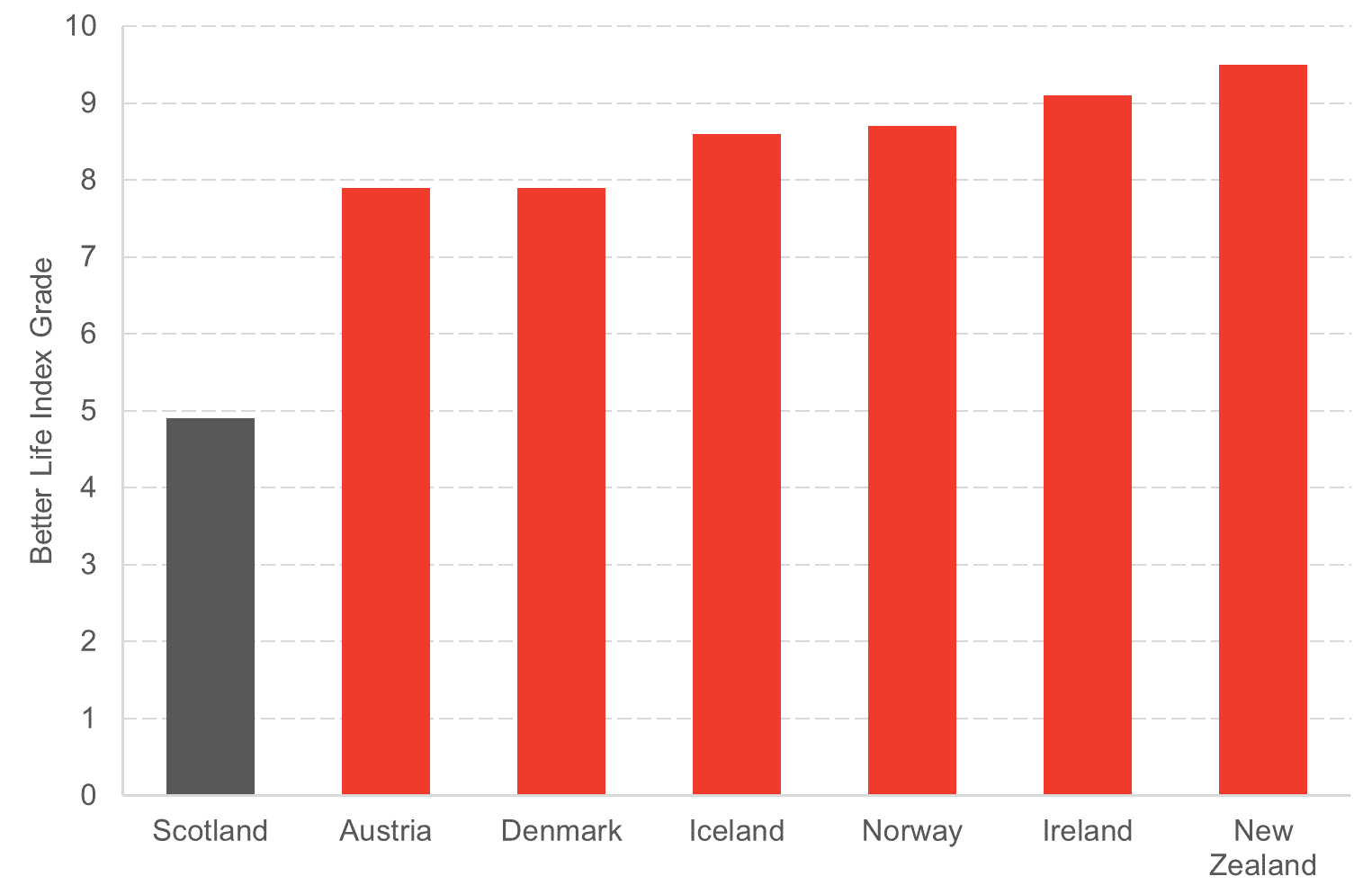
Source: OECD
Education
Scotland scores a 7.9 in Education, placing it as the highest scoring out of similar countries. The measure of Education is the share of the labour force with at least secondary education, Scotland’s percentage is 83.5%. When comparing it to similar countries like Iceland (6.9), Denmark (6.8) and Austria (6.6), Scotland scores very well.
Environment
Scotland scores 8.2 in Environment, placing it in the top 22% out of OECD regions. Iceland scores much better than Scotland and countries such as New Zealand and Denmark score similarly to Scotland.
Life Satisfaction
Scotland sits at 7.4 in Life Satisfaction, placing it in the top 37% out of all OECD regions. But when compared to countries of similar size and population, it scores the lowest. Countries such as Iceland (scoring 9.5) and Denmark (9.7) score much higher than Scotland. Even though Scotland is the number one region in the UK for Life Satisfaction, it still falls short when compared to these similar countries.
Jobs
Scotland compared to similar countries does well in Jobs, sitting at 8.6/10 and coming second to Iceland. See Chart 5. This is unsurprising as Scotland boasts an extremely low unemployment rate – the lowest in the UK. However, Scotland’s income does not match its employment scoring. See Chart 6. Scotland’s income per household and per person[1], after taxes, is just $19,994 USD, whereas Iceland sits at $33,604 USD a year. Scotland remains strong amongst other UK regions and relative to these small countries in terms of employment however wages must catch up before Scotland can hope to catch up in income.
Chart 5: Better life index for jobs
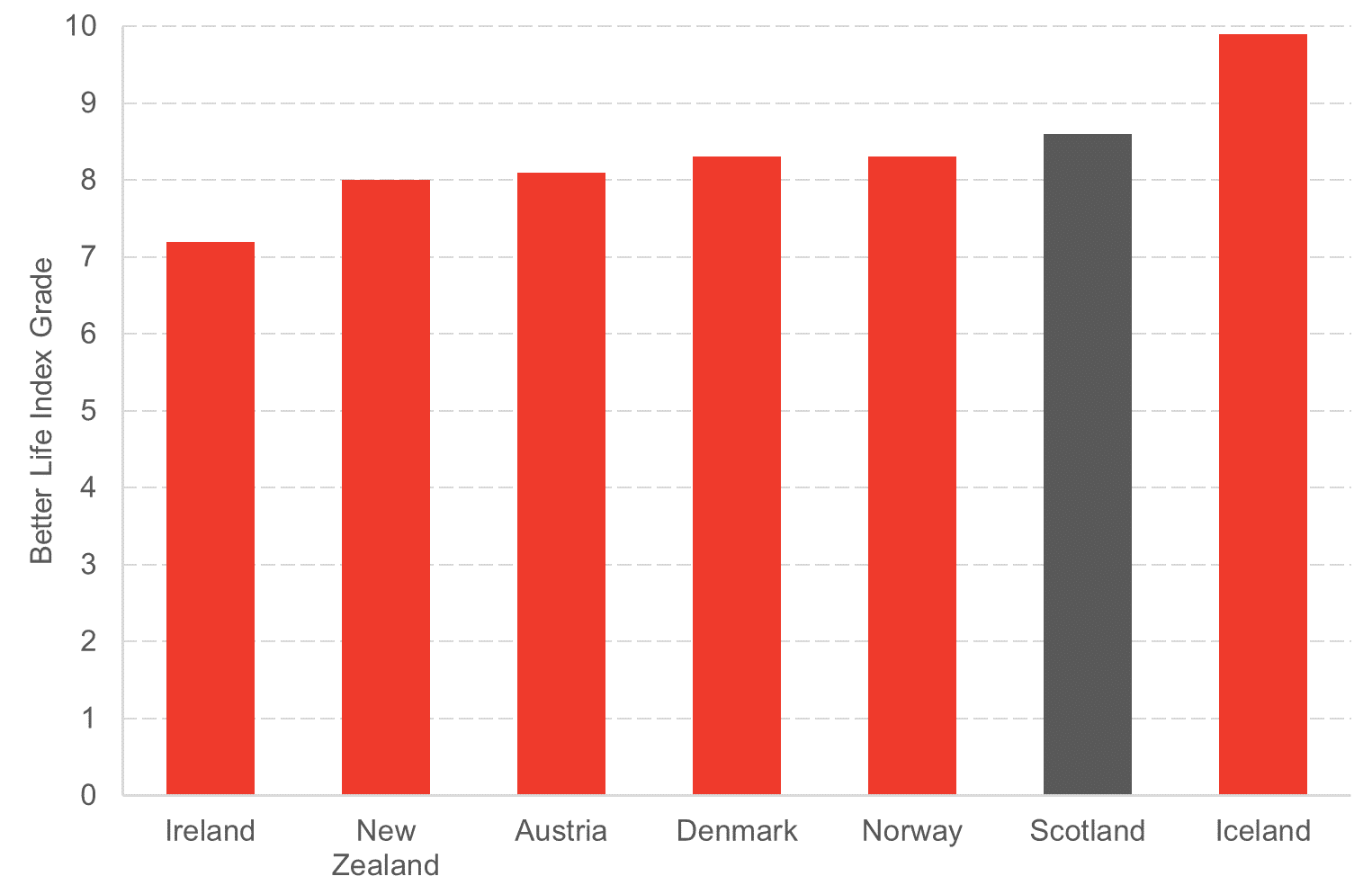
Source: OECD
Chart 6: Better life index for income
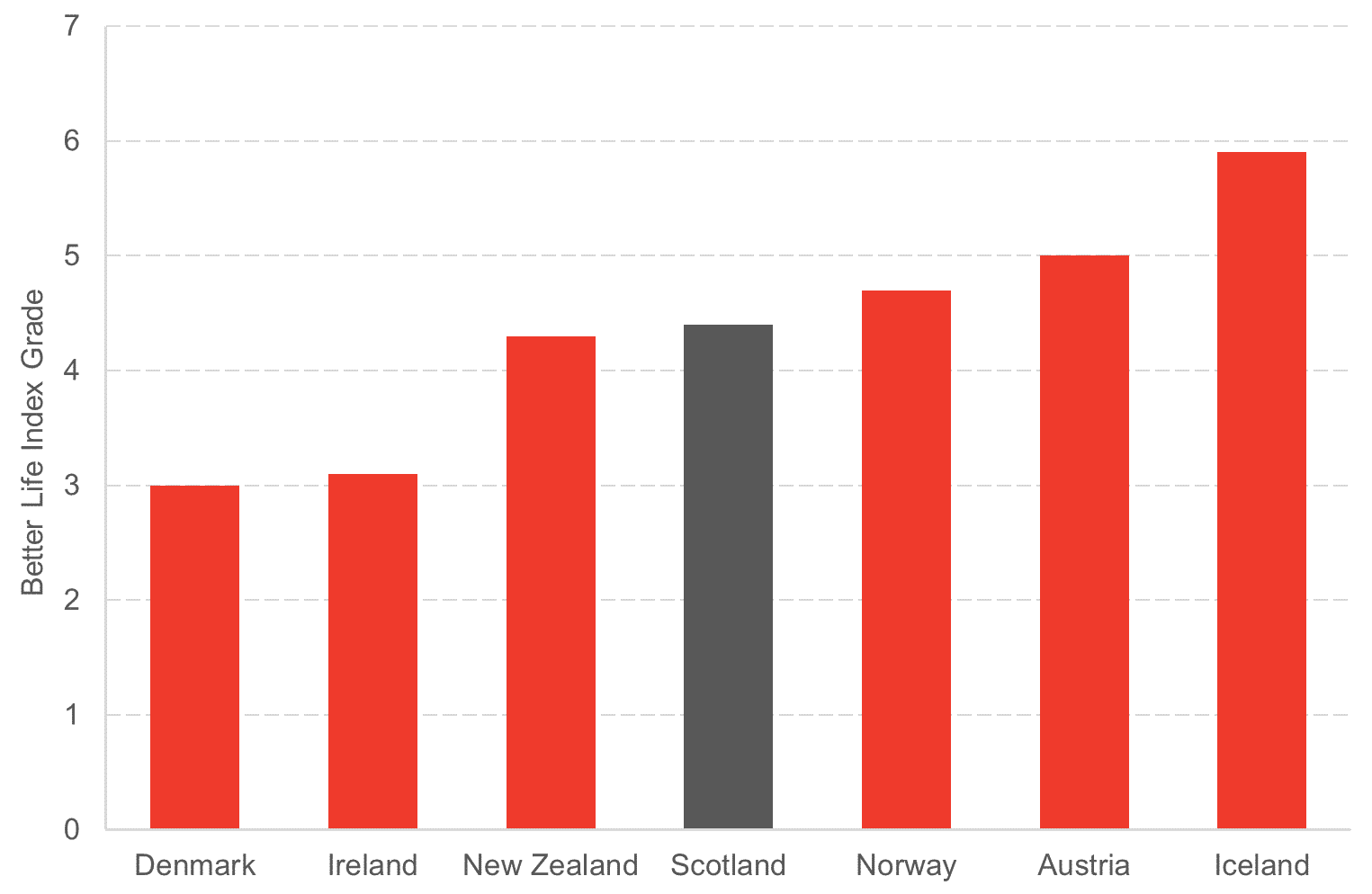
Source: OECD
Conclusion
These wider measures of success are important to consider when evaluating the prosperity and well-being of a country or region.
Over the past five years Scotland has seen increased life satisfaction. However, relative to the countries discussed, Scotland underperforms. While Scotland performs very well in terms of employment and education it has a long way to go in improving the health of its communities.
[1] US Dollars at current PPP’s
Authors
The Fraser of Allander Institute (FAI) is a leading economy research institute based in the Department of Economics at the University of Strathclyde, Glasgow.